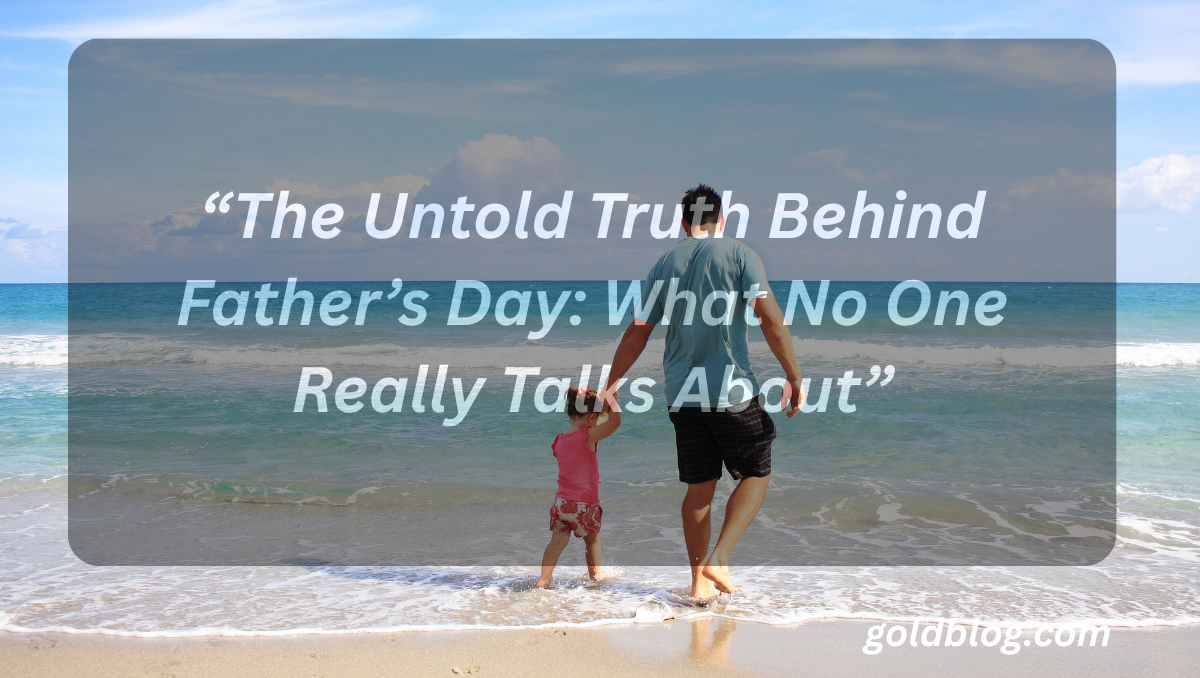Every June, storefronts fill with ties, “#1 Dad” mugs, and cards full of predictable messages. For a brief moment, the world pauses to say with warmth: Happy Father’s Day. But beyond the gifts and social media posts, what does this day truly represent? And why, despite its emotional significance, does Father’s Day often feel like a side note compared to Mother’s Day?
In this special article, we dive deep into the history, meaning, and human side of Father’s Day. It’s not just a celebration—it’s a powerful reminder of the quiet strength and love fathers carry every day, often without recognition.
A Daughter’s Love: The Real Origin of Father’s Day
Father’s Day didn’t begin as a marketing event. It began with love—a daughter’s tribute to her father. In 1909, Sonora Smart Dodd from Spokane, Washington, wanted to honor her dad, a widower who had raised six children all on his own after his wife’s death. Inspired by Mother’s Day, Sonora suggested a day to celebrate fathers.
The first Father’s Day was celebrated on June 19, 1910, but it took decades to gain national recognition. Finally, in 1972, President Richard Nixon officially made Father’s Day a permanent national holiday in the U.S.
Many countries now celebrate it, including Mexico, Spain, Argentina, Colombia, and others—though the date may differ, the intention remains the same: to honor fathers and father figures.
The Evolving Father: More Than Just a Provider
For a long time, fathers were boxed into a role: strict, distant, and mainly financial supporters. But that image has changed. Today’s fathers are hands-on, nurturing, emotionally open, and deeply involved in their children’s lives.
The modern dad changes diapers, attends school meetings, cooks dinner, and gives heartfelt advice. He’s not afraid to say “I love you” or show vulnerability. Yet, society still sometimes overlooks their emotional labor.
Father’s Day is a moment to really see the man behind the quiet sacrifices: the one who skips his needs for his family, who shows up even when he’s exhausted, who chooses love every single day.
The Double Life of Working Fathers
Fathers around the world are balancing careers and fatherhood in ways previous generations didn’t. Imagine a dad who works a long shift but still comes home with enough energy to read a bedtime story. Or one who hides his stress to be strong for his kids.
These are the real-life superheroes—not for lifting cars or flying—but for lifting spirits, building futures, and flying under the radar while doing it all. Fatherhood is not a side job. It’s a full-time heart commitment.
Pop Culture vs. Real Dads: Breaking the Stereotype
From Mufasa in The Lion King to Marlin in Finding Nemo, media has given us powerful images of fatherhood. But for every strong, caring dad in fiction, there’s often a cliché of the absent, clueless, or emotionally cold father.
The truth is more layered. Real fathers cry, forgive, protect, fail, and learn. They’re human. And Father’s Day is the perfect time to reflect on how far we’ve come in breaking outdated stereotypes.
The First Superhero We Ever Knew
Before kids learn about Batman or Superman, they often look up to one hero: their dad. Not because he wears a cape—but because he shows up. When a child falls, it’s dad’s arms that catch them. When something breaks, it’s dad’s hands that fix it.
Fathers rarely ask for recognition. Their love is often quiet, made of small moments that add up to a lifetime of meaning. That’s why Father’s Day matters—it brings visibility to the invisible efforts.
Fatherhood Beyond Biology
Not every child grows up with a biological dad. Some are raised by stepfathers, grandfathers, uncles, older brothers, or family friends who step up and fill that role with unmatched love.
Father’s Day is also for them. For every man who chose to love a child not by blood, but by bond. Because being a father is not defined by DNA—it’s defined by heart.
What Do You Say on Father’s Day?
A simple “Happy Father’s Day” is good—but imagine how meaningful it becomes when you say:
- Thank you for being my anchor.
- Thank you for showing up, even when no one asked.
- Thank you for loving me in your own quiet way.
Fathers don’t always express emotions outwardly, but their hearts feel every word.
The Impact of a Present Father
Countless studies show that children with actively involved fathers have higher self-esteem, do better in school, and form healthier relationships. But beyond statistics, it’s the everyday presence that shapes lives: helping with homework, talking about dreams, teaching kindness.
A father’s presence plants seeds of resilience, discipline, and emotional strength in a child’s heart.
How to Celebrate the Right Way
You don’t need an expensive gift to make Father’s Day special. Sometimes, the best gift is your time—a long conversation, a homemade meal, or a letter expressing your feelings.
Because for most dads, it’s not about things. It’s about being remembered, valued, and loved.
A Day to See What Was Always There
Father’s Day is more than a date—it’s a mirror. It reflects the love, the sacrifices, and the silent strength of a man who might not ask for praise but deserves the world.
So, today, don’t just scroll past or send a meme. Look at your dad—really look. Behind the tired eyes is a story full of love.
Say it with meaning:
Happy Father’s Day, Dad. You’re everything I never said enough.
